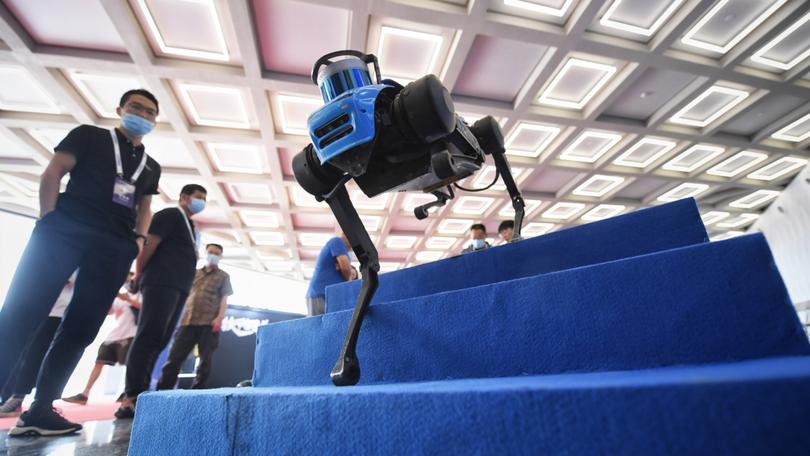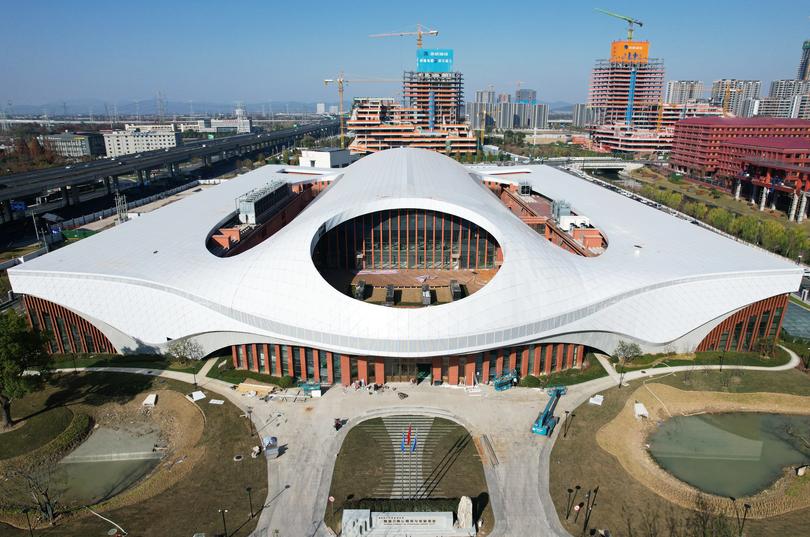THE ECONOMIST: Behind DeepSeek lies a dazzling Chinese university
The institution that birthed the AI conqueror models itself on Stanford and is located in the tech hotspot of Hangzhou.

A huge statue of Mao Zedong still stands near the entrance to Zhejiang University, surveying the transformation of the eastern city of Hangzhou, 175km southwest of Shanghai. Such statues look anachronistic wherever they linger across China, but especially so here, and especially after the events of the past few months.
The recent revolution in Hangzhou has not been a Maoist one, but a technological one. DeepSeek, the AI company whose groundbreaking models stunned foreign competitors when they were unveiled in December, was developed in Hangzhou. It was founded by Liang Wenfeng, an alumnus of Zhe Da, as it is known (from its Chinese name, Zhejiang Daxue), a university still largely unknown outside China. Zhe Da has rapidly emerged at the heart of a dynamic new ecosystem of researchers and entrepreneurs in the city that models itself on California’s Silicon Valley.
That ecosystem came into sharp focus on February 17, when China’s leader, Xi Jinping, met a group of tech entrepreneurs in Beijing. Among them was Jack Ma, who founded Alibaba, an e-commerce giant, in Hangzhou in 1999, but then disappeared from view in 2020 after criticising the financial regulator. Another was Mr Liang, who studied artificial intelligence at Zhe Da and made his first forays into business there. China’s leader apparently bringing Mr Ma in from the cold so publicly, and meeting with Mr Liang, will only fuel Hangzhou’s growth.
Sign up to The Nightly's newsletters.
Get the first look at the digital newspaper, curated daily stories and breaking headlines delivered to your inbox.
By continuing you agree to our Terms and Privacy Policy.Zhe Da has already grown fast in recent decades, buying high-end equipment and hiring top-tier scientists. Some 70,000 students and faculty now live and work across its seven campuses, in blocky buildings overlooking lakes and plum trees. Hangzhou and other cities have said they want to transform their universities into “innovation ecosystems”.
Zhe Da has not only become a research powerhouse but, even more importantly, has been adept at turning bright young students into business leaders. It says it will be a “world-class” university by 2027. Alumni say it is modelling itself on Stanford University rather than China’s most prestigious colleges in Beijing and Shanghai.
This may sound fanciful, and on overall measures of reputation and student experience by the QS World University Rankings, Zhe Da ranks 47th globally. Yet by some metrics the university has already eclipsed many of the world’s best. It now produces more scientific papers than any other university, according to the latest Leiden ranking, a measure of the volume of research output. It is behind only Harvard University in producing papers deemed to be in the top 10 per cent of their fields.
Alumni are among the wealthiest entrepreneurs in China, according to rankings by Hurun, a research firm, of those with more than 5 billion yuan ($1.1b) in assets. They include Colin Huang, the founder of Pinduoduo, an e-commerce giant, and Duan Yongping, an electronics tycoon.
In recent months the university’s reputation for enterprise has reached new heights. China is abuzz with talk of the “Six Little Dragons” of Hangzhou, a clutch of zippy startups, three of which were founded by Zhe Da alumni. DeepSeek is one. Another is Manycore Tech, a 3D-design software firm which on February 15 announced a plan to list in Hong Kong this year. Then there is DEEP Robotics, which specialises in dog-like robots, used for patrolling and rescue operations.
Breaking the mould
Three factors lie behind the university’s success. The first is its ability to attract and foster talent. Although many students in China yearn for a stable government job, Zhe Da has long drawn more daring souls, who throw themselves into startup competitions where they can pitch business ideas to get university funding. Their professors are unusual, too, encouraging students to dabble across disciplines in order to spark ideas, and trying to foster what they call a “mistake-tolerant” atmosphere.

When Huang Chaoyu was in high school he built a temperature-controlled tank for his pet fish. Now a 21-year-old undergraduate studying materials science at Zhe Da, he has set up a company with his supervisor aiming to produce a kind of biological “glue” to help heal wounds.
Pure research is important for breakthroughs, he says, but “to truly change society you need industry”. Mr Huang is part of a special class, first offered in 1999, that helps science students learn about entrepreneurship. It meets in a shared workspace where a sleek white robot stands near a poster calling on students to “dare to innovate”. On average, one fifth of the class starts a company within five years of graduating, say university officials. Alumni help them find funding, internships and contacts.
Many faculty members start companies, too. Chinese universities are typically uneasy about distractions from academic pursuits. But Zhe Da has been helping its scientists commercialise their findings for decades, says Jin Yiping, a university administrator. In 2009 it set up an institute dedicated to this purpose. DEEP Robotics is run by Zhu Qiuguo, a professor at the school of engineering. His colleague, Gao Chao, runs a company which makes textiles from graphene, an advanced material.
The second factor helping Zhe Da is location. Hangzhou is a liveable canal-crossed city just 45 minutes by train from Shanghai, but a long way from the politicians in the capital. After the Communist Party took power in 1949, state planners largely ignored it, leaving space for private firms to re-emerge when reforms began in 1978. Of the top 100 companies in Hangzhou, 82 are private, a high proportion for a large Chinese city. Its GDP per person is nearly double the national average.
That Mr Ma’s company, Alibaba, was founded here has also had an impact. The university describes the firm as a “good neighbour, partner and friend”. In 2017 Mr Ma made a big donation to a university hospital. In 2023 Alibaba donated its quantum-computing lab to the university. For nearly a decade Alibaba and the university have jointly run a research centre for what they call “frontier technologies” such as computer vision. It takes interns and post-doctoral students from the university and helps them find jobs in industry.
Third, Hangzhou officials are known for getting things done without asking for favours or fancy dinners, says Zhang Jie, an investor and Zhe Da alumna. This makes it easier for young graduates to start companies. Most government services can be used through an app, notes a local entrepreneur. Officials love tech firms. They offer startup founders with PhDs up to 15 million yuan in funding if they move to the city.
Other universities are trying to emulate Hangzhou’s success. Tsinghua in Beijing is producing AI talent, much of which gets hired by DeepSeek. The South China University of Technology in Guangzhou has close links with China’s electric-vehicle industry. But Hangzhou’s mix is hard to replicate, notes Yao Yang, an economist at Peking University. And talent tends to cluster in a few spots, not disperse to many.
Zhe Da still faces challenges in competing on a global level. One problem is that it relies largely on the government for funding. That has served it well so far, but leaves it at the mercy of changing official priorities and fiscal constraints. Alumni are generous but building up an endowment to match, say, Stanford’s $US36b ($56.7b) is unlikely. And even then, the university must defer to officials on how to spend it.
Compared with its overseas peers, few of Zhe Da’s faculty or students are from outside China. It has poached elite researchers from American universities (including, last year, Sun Song, a star mathematician from the University of California, Berkeley) but they are typically of Chinese descent. Political tensions with the West do not help. Nor do the barriers to free speech common in China.
For all that, Zhe Da shows that “the tectonic plates of global higher education are shifting very dramatically”, says William Kirby, a China expert at Harvard Business School. In January China released a plan to become an “education power…with global influence” by 2035. Not long ago that goal would have looked overly ambitious. Now, places like Zhe Da have made it look surprisingly likely.
